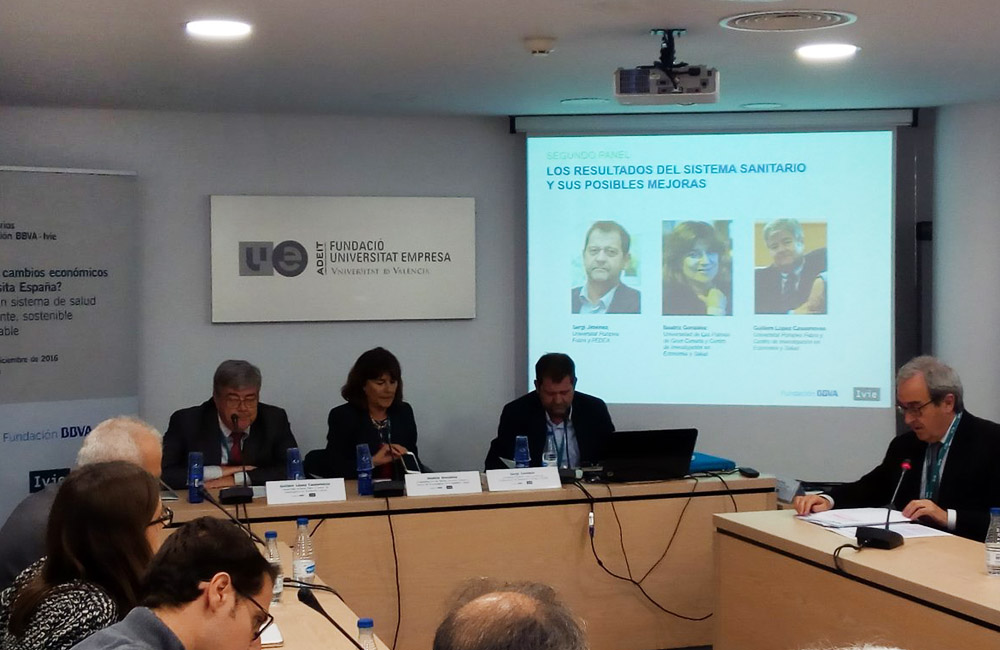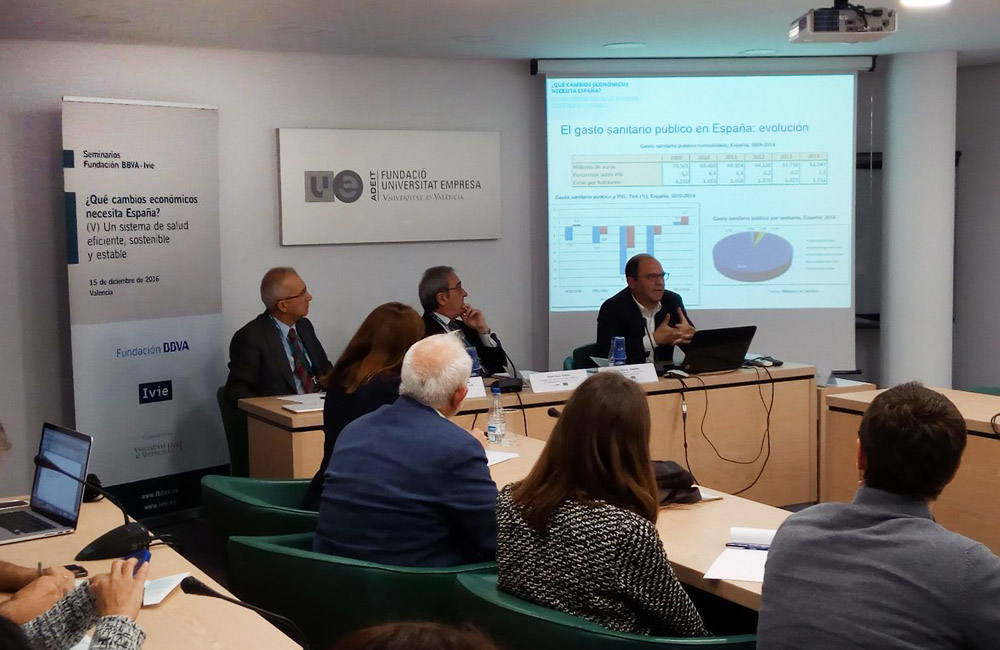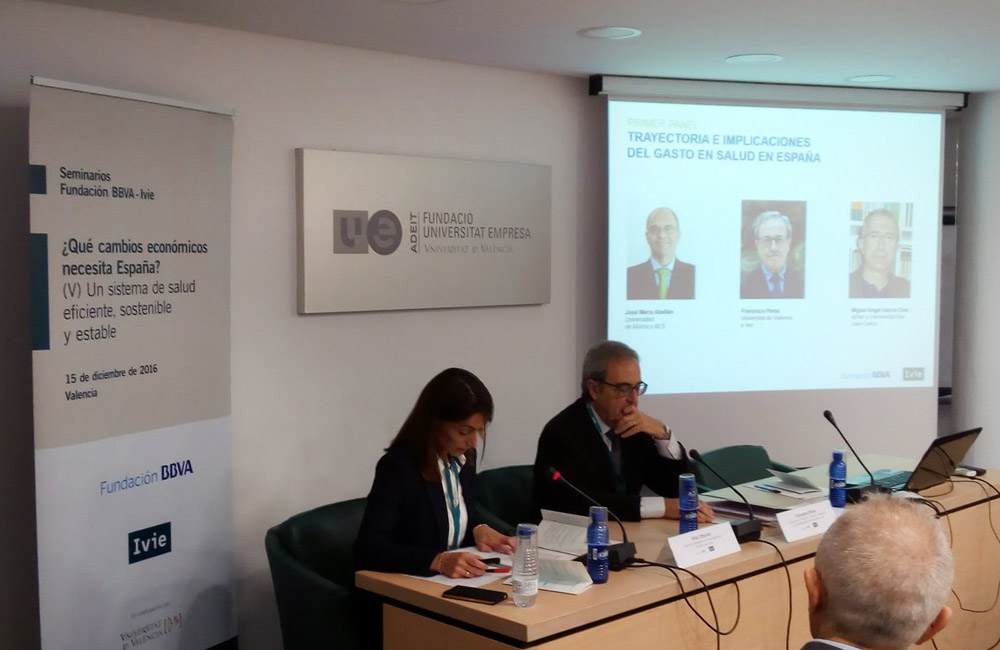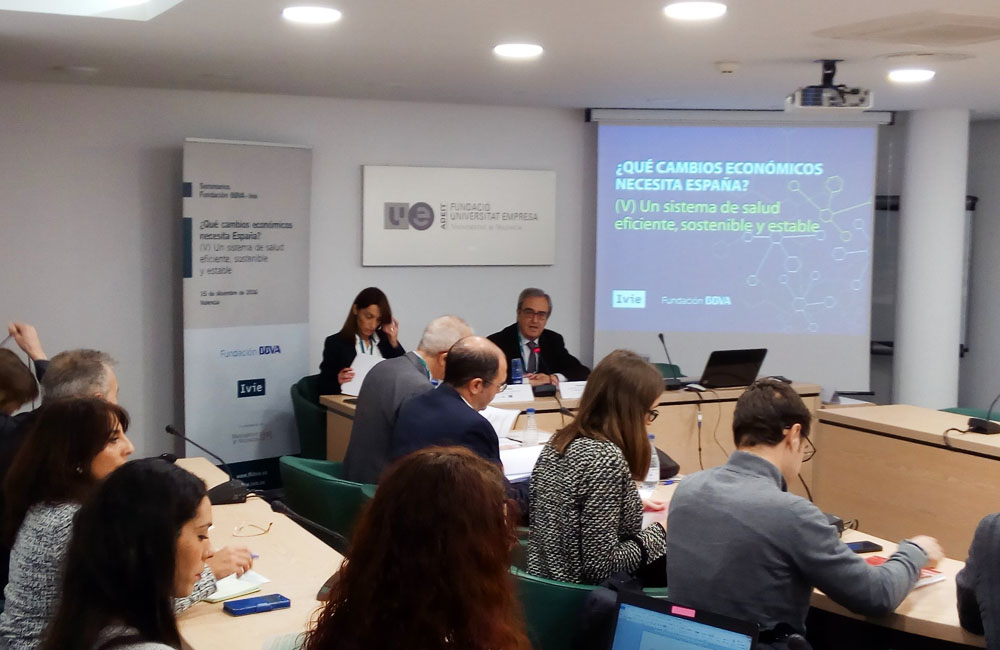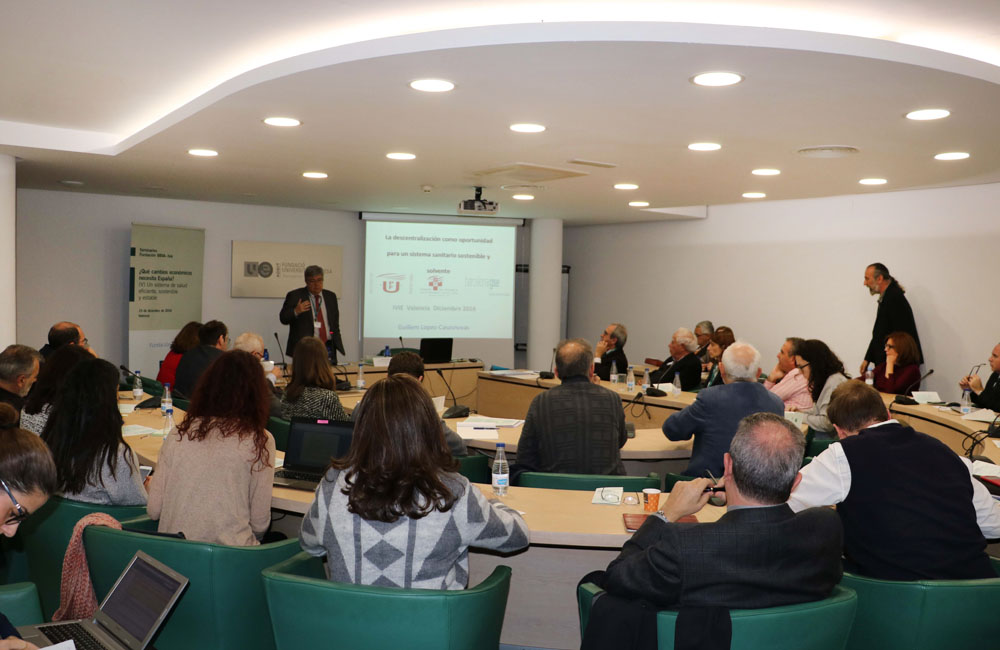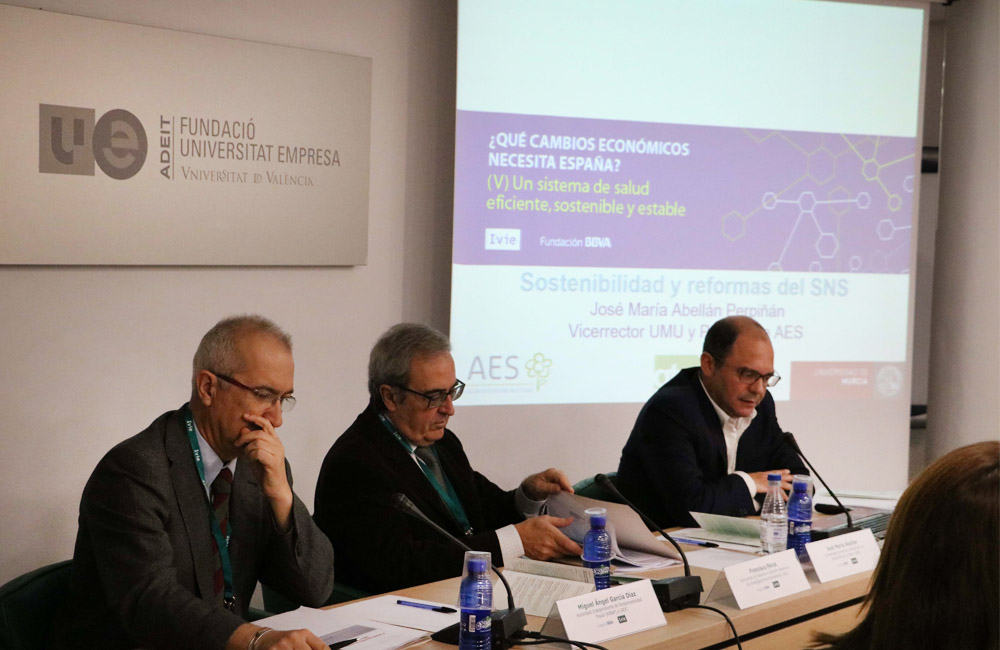News
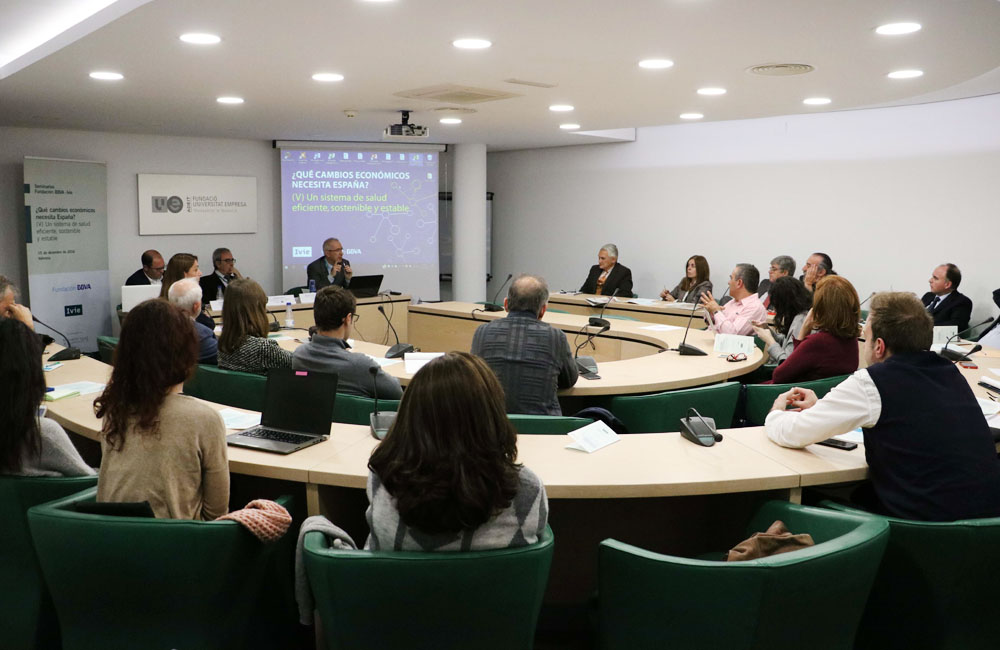
Differences of up to 30% exist in public health expenditure per capita among the Spanish regions
The seminar, organized by Ivie and BBVA Foundation, analyzed the Spanish health system and put forth ways to improve it
So far in this century, Spanish public health spending has gone through a primary phase of strong expansion, while later experiencing cutbacks as a result of the economic crisis. Specifically, public expenditure on health per capita increased 40% between 2002 and 2009 and fell 21% between 2009 and 2014, as Ivie’s Research Director, Francisco Pérez, explained at the Seminar ¿Qué cambios económicos necesita España? Un sistema de salud eficiente, sostenible y estable.
The Seminar, held at the University-Enterprise Foundation (ADEIT), also highlighted differences in per capita health expenditure among regions of up to 30%: for example, expenditure per capita in 2014 in the Basque Country was 1,566 euros, while in Andalusia 1,039 euros.
Although variances in regional demographic structure and costs of health services contribute to the differences in spending, these are also due to the disparities in funds designated to each autonomous community, and affect the number of human resources available to provide such services.
The Seminar is part of a series of meetings dedicated to the economic changes Spain needs, which have been held for five consecutive years in Valencia. On this occasion, it was structured in two sessions. The first focused on the evolution of health expenditure in Spain, especially during the crisis, as well as on the existing regional differences, with the participation of José María Abellán, Vice-Rector for Economy, Sustainability and Health Sciences of the University of Murcia and President of AES (Association of Health Economics); Miguel Angel García Díaz, Professor of the University Rey Juan Carlos of Madrid and Senior Analyst of the President’s Office of AIReF (Independent Authority for Fiscal Responsibility); and Francisco Pérez, Ivie Research Director.
José María Abellán highlighted the great territorial differences in the weight of health spending on regional GDP. In some regions, it represents 9%, while in others it barely reaches 4%, with the national average at 5.6%. Several papers presented at the Seminar found that these regional inequalities have not decreased throughout the century, neither during the expansion, nor the recession period.
Miguel Ángel Garcia focused his presentation on the evolution of regional employment in health during the period 2002-2014, highlighting the “irregular behaviour of employment between 2008 and 2011, with increases that were not in line with the growing needs of the population nor the financial circumstances in the early years of the crisis, which have worsened social tensions resulting from subsequent cutbacks”.
The second part of the Seminar dealt with the efficiency of the current Spanish health system and possible improvements. The participants in this debate were Sergi Jiménez, Professor at Pompeu Fabra University and Researcher of Fedea; Beatriz González, Professor at the University of Las Palmas de Gran Canaria and Researcher at CRES (Centre for Research in Health and Economics); and Guillem López Casasnovas, Professor at the Universitat Pompeu Fabra and Director of CRES.
Sergi Jiménez highlighted the quality of the Spanish health system. Despite cuts, the majority of its indicators have not been affected negatively. However, he did express concern for some indicators such as the increase in low-birth weight and obesity -especially in children- as well as the evolution of mental sicknesses and decline in the public opinion on the quality of the health care system. Although these indicators are not clearly associated with the crisis, Professor Jiménez warned of the risk of consolidation of some of these trends.
Beatriz González noted in her presentation that the decrease in public spending has come hand in hand with an increase in household expenditure on health, entailing a risk of inequality o access to health services resulting from different socio-economic household conditions. She also highlighted that some of the measures taken in terms of copayments have clearly influenced users’ behavior, slowing down spending. The Professor of the University of Las Palmas asserts that greatest future achievements in reducing health costs will originate from organizational and professional reforms –in which there is much work to do- and not from technological improvements.
Finally, Guillem López Casasnovas focused his presentation on decentralization as an opportunity to achieve a sustainable health system and, above all, a solvent system capable of responding quickly to changing needs. In that regard, he stressed the contrast between the rich experiences of the decentralization of the Spanish health system and the poor evaluations of such experiences. “Without an outcome assessment, experimentation is a waste because it prevents from knowing what the best practices are and the dissemination of the results”.


